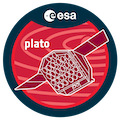PLATO is the 3rd mission of class M in the ESA Cosmic Vision program. Its main goal is detecting terrestrial planets in the habitable zone of solar type stars. With its huge FOV, most of the PLATO targets are bright stars that will be monitored with high cadence (25 s) for at least 2-3 years during the long duration observing program, while contemporary a number of very bright stars in the sample will be observed with 2.5 s cadence. The collected data, photometry from space and high resolution spectroscopy from the ground, will provide accurate planetary structures as well as architectures and evolutionary stage - via asteroseismic analysis - of a large number of planetary systems. PLATO is planned for a launch in Dec 2026.
More information on PLATO are on the ESA website and in PLATO Mission Consortium website.
With PLATO Mission due for launch soon this would seem a good time to review the present state of knowledge of exoplanet systems and the objectives of the mission. PLATO is optimized for the detection and characterization of small planets in the habitable zones of Sun-like stars. By combining two cutting-edge approaches: planetary transits and the study of the internal structure of stars using stellar seismology, supported by a dedicated ground-based observation programme.In combination with a dedicated ground based observation programme, PLATO will provide accurate planetary parameters (including age) for a large sample of exoplanets which could be used to answer many scientific questions eg if there are favoured evolutionary paths for exoplanets by comparison with theoretical population models PLATO will provide accurate and complete planetary parameters (including age) for a large sample of exoplanets, allowing to address a variety of scientific questions: planet occurrences, trends in composition, dynamical evolution, favoured evolutionary paths, etc.
The aim of this conference is to review the current state of the art in the field and to examine the range of scientific questions PLATO data could prove useful. Themed sessions will examine planetary systems at all stages of their evolution as well as give an overview of the PLATO mission, its future data, and how to become involved.
We encourage attendance in person to foster personal interaction and building of collaborations, and we expect to have a limited number of travel bursaries available for young scientists. However, we are committed to provide an inclusive conference and allow remote participation for those not able to travel.
SESSION THEMES
1 - PLATO mission - where are we?
2 - PLATO Science - From Stars to Planets
3 - System architectures from observations
4 - Advances in planet formation
5 - Exoplanets Evolution
6 - Relevant Stellar Science
Pre-registration is now closed.
All pre-registered participants are required to confirm and complete the registration form starting from 21 February 2024.
Pre-registered "in person" participants missing to confirm their registration before April 21th will be cancelled from the participant list.
The registration is open also for not pre-registered participants.
Important Dates:
* 29 March: Abstract submission deadline
* 15 April: Abstract decisions publicised
* 21 April: Close registration for in-person attendance
* 30 April: Close payment for in-person attendance
* 10 May: Close registration for remote attendance
